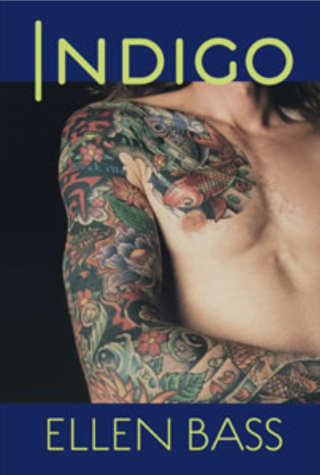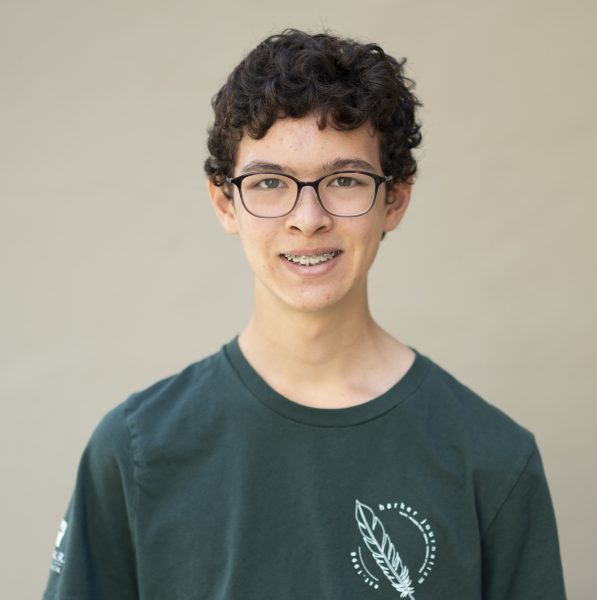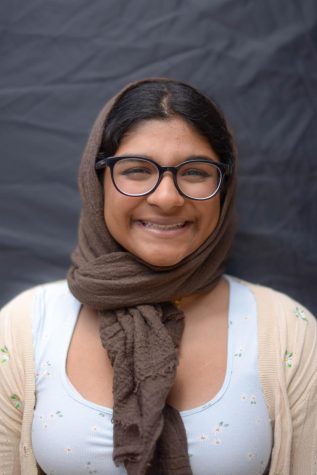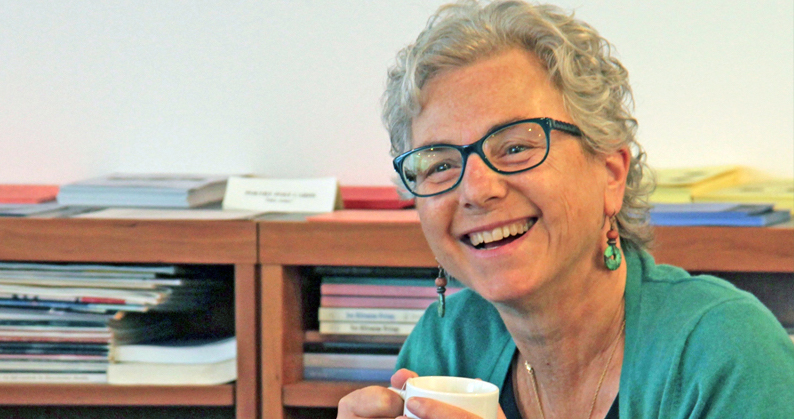The Poet’s Project: ‘The magic and mystery of it’
Ellen Bass is the author of four poetry collections, including most recently, “Indigo” (Copper Canyon Press 2020). Her poems have been published in the New Yorker and the American Poetry Review and have been recognized by the Guggenheim Foundation and the National Endowment of the Arts. She has previously served as a Chancellor for the Academy of American Poets, a critically-acclaimed group of poets who serve as poetry ambassadors, judges and advisors. Bass is based locally in Santa Cruz, California, where she teaches, reads and writes.
Bass spoke with Harker Aquila about her experiences reading, writing and teaching poetry, making a home and a life out of this art. She spoke about how she first dipped her toes into language, the shared intimacy that poetry invokes for her and the mentors who have supported her along the way.
I loved all kinds of poetry [from a young age], not just contemporary poetry. There was something in the incantation of it and the magic of it, the intimacy of it. Somebody is speaking to you from a poem, one to one. I was very caught up with it, and loved it and wanted to try and do it myself. I wanted to try and write poetry. I was not all that promising or talented, but I felt a compulsion.
Because I started writing so long ago, poetry wasn’t a career then. There’s a way now, a path, and more people can choose it. People can find teachers and ways to learn and really work on their craft in a serious way, and make this commitment knowing that others are on the road with them. But back when I started to write poetry, there really wasn’t much of a path, and not that many people were just wanting to do that with their lives. I didn’t feel very much sense of how it should go or how it should progress.

When I began writing, I didn’t really know how to work at it very well. I think that it was more luck if a poem worked out. Over the years, more and more, I [developed] a better sense of what might be working and what might not be working in a poem. I know how to pay attention to the language in a different way. There were certain things that came a little bit more naturally to me in the beginning — like metaphor is something that I always felt was a strong suit — but now I can more consciously work at things that I don’t think are my strong suits. The music of the line is something that I feel like I can work at: before it either happened or didn’t happen.
I didn’t know very much about the craft at all, but when I got to college, I had a teacher who taught a class that she called “versification,” and we had to write in particular forms. They didn’t have to be good poems, but they had to be correctly in that form. I tried to make them as good as I could, but I didn’t have to really worry about that because that wasn’t really part of the assignment. It was just to learn to write in these forms, and I felt like I got them in my body to a certain extent, even though I never went on to be a formalist poet. I just got hooked.
I had another teacher in college, Florence Howe, who went on to found the Feminist Press, the longest running women’s press in the world. There was a little paper that we had to write, and she wrote on the page, “You like to write.” I thought that was about the best comment anyone could possibly have made, the most insightful and useful. It wasn’t “You’re a good writer,” or, “You’re a great writer,” or “You should do this, you should do that.” It was just holding a mirror up and telling me something about myself, and I looked at that and I went, “Yeah I do, I do.” I just really wanted to do as much of what I wanted to do as possible.
When I talk to my kids and to students, I always say, “Follow your heart, follow your desire, because that’s as good a competence as anything.” You can’t always do everything you desire, you can’t always get everything you desire, but get as close as you can. Don’t go towards something you don’t desire. What good will that do if you get it? You won’t want it anyway. And if you don’t get it, well, then you’re still nowhere.
Sometimes young people feel if they’re afraid that means they can’t do it. As a writer, you want to not be afraid, you want to not let any fear stop you from putting on the page what you want to put on it. It doesn’t mean you ever have to show it to anyone. You could even tear it up, or burn it if you feel that you need to. You always want that channel between you and the page open. You don’t want to be afraid to tell yourself anything, or, if you are afraid, you don’t want to let it stop you.
It’s paradoxical because those are often the things that are going to be most meaningful to people. I would never, ever, share what’s in my journals. Some people have journals that are shareable, but mine are not. Once I’ve made it into a poem, then it’s different, it’s not me talking to a friend, it’s not me just writing in my journal. I’ve made it into something. It’s a paradox, because it may be like the truest expression, but it’s also not the most raw expression. It’s shaped to do what the poem wants it to do, not just what I might want to express as self expression.
With a poem like “Indigo,” it is vulnerable, but it’s shaped. It’s not me crying on your shoulder. There’s a form to it, and that’s what makes it a poem instead of just a puddle. It becomes its own body.
It’s interesting, and always striking to me even though I’ve seen it again and again with my work and with the work of others, that the more personal we are, the more universal. You read that poem and you don’t have experiences like anything in there. And yet, something speaks to you, and that’s the magic and mystery of it.

Felix Chen (11) is the co-news editor for Harker Aquila and the Winged Post, and this is his third year on staff. Felix hopes to diversify this year's...

Sarah Mohammed (12) is the co-editor-in-chief of the Winged Post, and this is her fourth year on staff. This year, she is excited to help make beautiful...


















![“[Building nerf blasters] became this outlet of creativity for me that hasn't been matched by anything else. The process [of] making a build complete to your desire is such a painstakingly difficult process, but I've had to learn from [the skills needed from] soldering to proper painting. There's so many different options for everything, if you think about it, it exists. The best part is [that] if it doesn't exist, you can build it yourself," Ishaan Parate said.](https://harkeraquila.com/wp-content/uploads/2022/08/DSC_8149-900x604.jpg)




![“When I came into high school, I was ready to be a follower. But DECA was a game changer for me. It helped me overcome my fear of public speaking, and it's played such a major role in who I've become today. To be able to successfully lead a chapter of 150 students, an officer team and be one of the upperclassmen I once really admired is something I'm [really] proud of,” Anvitha Tummala ('21) said.](https://harkeraquila.com/wp-content/uploads/2021/07/Screen-Shot-2021-07-25-at-9.50.05-AM-900x594.png)







![“I think getting up in the morning and having a sense of purpose [is exciting]. I think without a certain amount of drive, life is kind of obsolete and mundane, and I think having that every single day is what makes each day unique and kind of makes life exciting,” Neymika Jain (12) said.](https://harkeraquila.com/wp-content/uploads/2017/06/Screen-Shot-2017-06-03-at-4.54.16-PM.png)








![“My slogan is ‘slow feet, don’t eat, and I’m hungry.’ You need to run fast to get where you are–you aren't going to get those championships if you aren't fast,” Angel Cervantes (12) said. “I want to do well in school on my tests and in track and win championships for my team. I live by that, [and] I can do that anywhere: in the classroom or on the field.”](https://harkeraquila.com/wp-content/uploads/2018/06/DSC5146-900x601.jpg)
![“[Volleyball has] taught me how to fall correctly, and another thing it taught is that you don’t have to be the best at something to be good at it. If you just hit the ball in a smart way, then it still scores points and you’re good at it. You could be a background player and still make a much bigger impact on the team than you would think,” Anya Gert (’20) said.](https://harkeraquila.com/wp-content/uploads/2020/06/AnnaGert_JinTuan_HoHPhotoEdited-600x900.jpeg)

![“I'm not nearly there yet, but [my confidence has] definitely been getting better since I was pretty shy and timid coming into Harker my freshman year. I know that there's a lot of people that are really confident in what they do, and I really admire them. Everyone's so driven and that has really pushed me to kind of try to find my own place in high school and be more confident,” Alyssa Huang (’20) said.](https://harkeraquila.com/wp-content/uploads/2020/06/AlyssaHuang_EmilyChen_HoHPhoto-900x749.jpeg)



